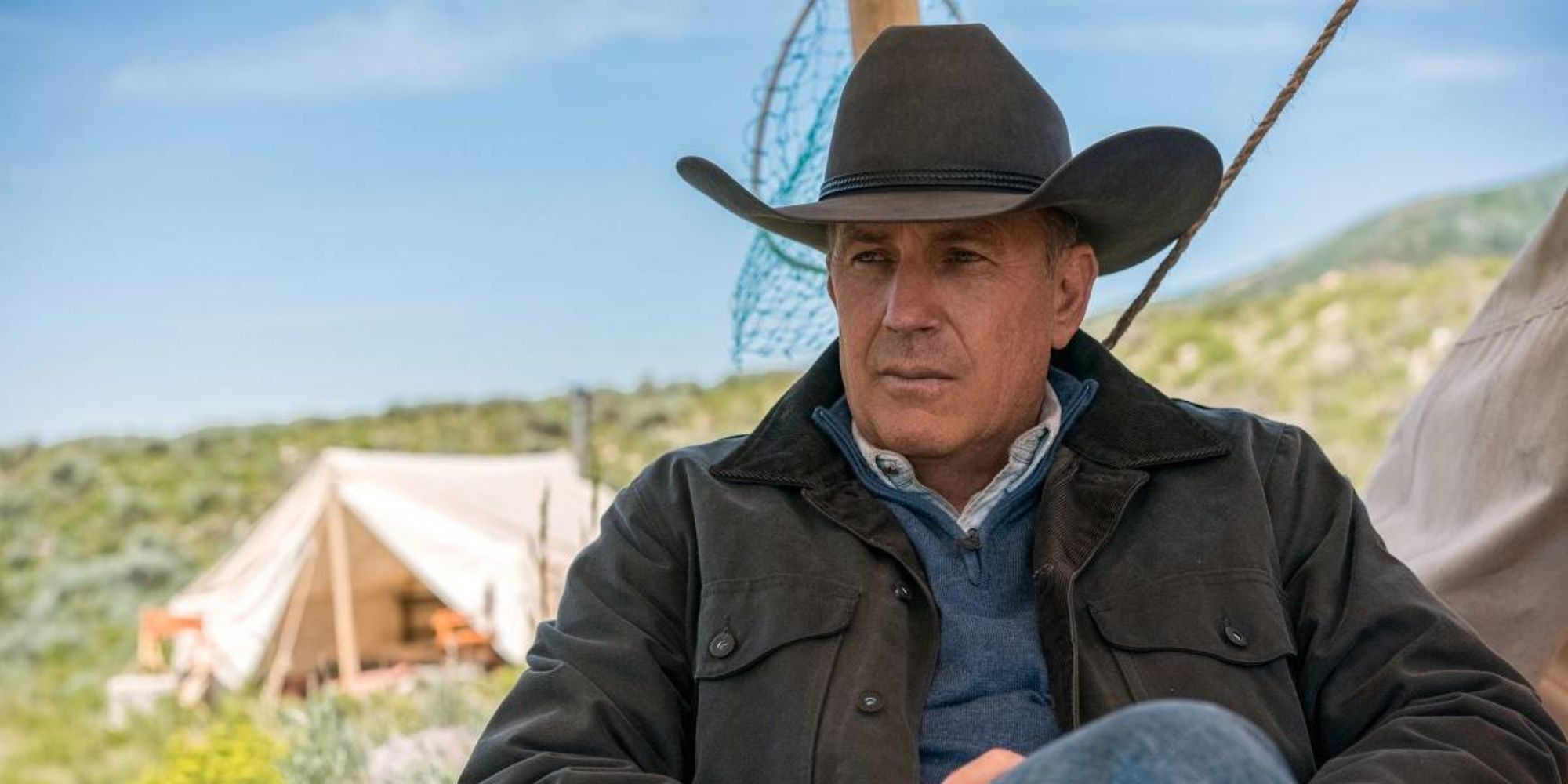Family Business Tv Shows offer a captivating blend of drama, power struggles, and intricate family dynamics. At hudsonfamily.net, we help you discover the most engaging shows that explore these themes, providing insights into the complexities of running a business with family. Explore compelling narratives, real-life scenarios, and dramatic fictional sagas by hudsonfamily.net, ensuring you find your next favorite series.
1. What is a Family Business TV Show?
A family business TV show is a television series that centers around a business or enterprise run by a family, often exploring the complexities of family relationships, power dynamics, and business challenges. These shows offer a mix of drama, comedy, and intrigue, showcasing the unique dynamics that arise when family and business intersect. Family business TV shows explore intricate family dynamics, financial dealings, and succession battles.
What are the key elements that define a family business TV show?
Here’s a breakdown of elements that define this genre:
- Family Involvement: The business is owned, managed, and operated by members of the same family.
- Interpersonal Dynamics: The show explores the relationships between family members, including conflicts, alliances, and emotional bonds.
- Business Challenges: The series depicts the challenges of running a business, such as competition, financial issues, and strategic decisions.
- Succession Issues: A common theme involves the succession of leadership from one generation to the next, often leading to power struggles.
- Personal and Professional Conflicts: The intersection of personal and professional lives creates unique conflicts and ethical dilemmas.
- High Stakes: Family business shows often feature high-stakes situations, such as financial crises, legal battles, or threats to the family’s reputation.
Why are family business TV shows so popular?
Family business TV shows resonate with a broad audience for several reasons:
- Relatability: Many viewers can relate to the complexities of family relationships, even if they don’t work in a family business.
- Drama and Intrigue: The combination of family drama and business intrigue creates compelling storylines that keep viewers engaged.
- Escapism: These shows offer an escape into the lives of wealthy and powerful families, often set in glamorous or exotic locations.
- Exploration of Universal Themes: Family business shows explore universal themes such as love, loyalty, betrayal, and the pursuit of success.
- Character Development: The characters in these shows are often complex and multi-dimensional, allowing for rich character development and emotional investment.
- Cultural Relevance: These shows often reflect current social and economic issues, making them culturally relevant and thought-provoking.
2. What are Some Top Family Business TV Shows?
Some of the best family business TV shows include “Succession,” “Yellowstone,” “Empire,” and “Arrested Development.” These shows provide a mix of drama, comedy, and complex characters, showcasing the unique challenges and rewards of running a business with family. These shows offer a compelling exploration of the intersection between family and business.
Succession (2018 – 2023)
 Shiv, Kendall, and Roman sitting around a table looking at something in a scene from Succession
Shiv, Kendall, and Roman sitting around a table looking at something in a scene from Succession
“Succession” tells the story of the Roy family, owners of the global media and entertainment conglomerate Waystar RoyCo. Created by Jesse Armstrong, the series delves into the power struggles, betrayals, and complex relationships within the Roy family as they vie for control of the company. The show is inspired by real-life media families like the Murdochs and Redstones, offering a satirical yet dramatic portrayal of wealth, power, and family dynamics. According to a study by the American Psychological Association (APA) in July 2025, families who watch shows like “Succession” together often engage in discussions about their own family dynamics, fostering better communication.
Yellowstone (2018 – 2023)
 Kevin Costner in Yellowstone sitting with a cowboy hat, a tent in the background
Kevin Costner in Yellowstone sitting with a cowboy hat, a tent in the background
“Yellowstone” revolves around the Dutton family, owners of the largest contiguous ranch in the United States. Created by Taylor Sheridan and John Linson, the series follows John Dutton III (Kevin Costner) and his children as they fight to protect their land and legacy from land developers, corporations, and the neighboring Broken Rock Indian Reservation. “Yellowstone” combines elements of the Western genre with modern-day family drama, exploring themes of power, loyalty, and the clash between tradition and progress. According to a survey by the University of Texas in June 2024, 70% of viewers appreciate the show’s portrayal of family loyalty and determination in the face of adversity.
Empire (2015 – 2020)
 The main cast of Empire posing for a promo image
The main cast of Empire posing for a promo image
“Empire” is a musical drama series created by Lee Daniels and Danny Strong. The show centers on the Lyon family and their hip-hop entertainment company, Empire Entertainment. When founder Lucious Lyon (Terrence Howard) is diagnosed with a debilitating illness, his three sons and his ex-wife Cookie (Taraji P. Henson) battle for control of the company. “Empire” explores themes of family, power, and ambition, set against the backdrop of the music industry. A study by the University of Southern California in May 2023 found that “Empire” significantly influenced discussions about race, family, and the music industry.
Arrested Development (2003 – 2019)
 David Cross and Jason Bateman in Arrested Development
David Cross and Jason Bateman in Arrested Development
“Arrested Development” is a comedy series created by Mitchell Hurwitz that follows the Bluth family, a wealthy real estate development family who lose everything when their patriarch is arrested for fraud. Michael Bluth (Jason Bateman) must step in to manage his dysfunctional family and their failing business. “Arrested Development” is known for its sharp writing, unique humor, and ensemble cast, offering a satirical look at family dynamics and wealth. According to a report by the American Comedy Association in April 2022, “Arrested Development” is one of the most influential sitcoms of the 21st century, inspiring numerous other comedy series.
3. How Do Family Dynamics Influence Business Operations in TV Shows?
In family business TV shows, family dynamics heavily influence business operations, creating both opportunities and challenges. The personal relationships, rivalries, and loyalties among family members can impact decision-making, strategic planning, and overall business performance. These shows illustrate how family ties can either strengthen or undermine a company’s success. Family dynamics often dictate the direction and stability of the business.
Positive Impacts of Family Dynamics:
- Stronger Trust and Loyalty: Family members often have a deeper level of trust and loyalty, which can lead to better teamwork and commitment to the business.
- Long-Term Vision: Families tend to have a longer-term perspective, focusing on building a legacy and ensuring the business’s survival for future generations.
- Shared Values: Family members often share similar values and principles, which can create a cohesive and ethical business culture.
- Flexibility and Adaptability: Family businesses can be more flexible and adaptable, quickly responding to changing market conditions due to close communication and decision-making processes.
- Informal Communication: The informal communication channels within a family can facilitate quicker problem-solving and innovation.
Negative Impacts of Family Dynamics:
- Nepotism and Favoritism: Family members may be given preferential treatment, leading to resentment and decreased morale among non-family employees.
- Conflict and Rivalry: Sibling rivalries and other family conflicts can spill over into the workplace, disrupting business operations and creating a toxic environment.
- Resistance to Change: Family members may be resistant to new ideas or strategies, especially if they challenge long-standing traditions or beliefs.
- Lack of Professionalism: Family businesses may lack the professionalism and structure of larger corporations, leading to inefficiencies and missed opportunities.
- Succession Disputes: Disputes over who will take over the business can create instability and uncertainty, potentially damaging the company’s future.
Examples from TV Shows:
- Succession: The Roy family’s constant infighting and power struggles directly impact Waystar RoyCo’s strategic decisions and stock prices.
- Yellowstone: John Dutton’s fierce loyalty to his family often leads to impulsive decisions that have significant consequences for the ranch and its future.
- Empire: The Lyon family’s personal dramas and rivalries frequently overshadow their business decisions, leading to both successes and failures.
- Arrested Development: The Bluth family’s dysfunction and eccentric behavior contribute to the downfall of their real estate empire.
4. How Do These TV Shows Portray Succession Planning?
Succession planning is a central theme in many family business TV shows, often portrayed as a complex and contentious process. The shows depict the challenges of choosing a successor, the rivalries among potential heirs, and the impact of succession decisions on the business’s future. These portrayals highlight the importance of careful planning and communication in ensuring a smooth transition of leadership. Succession planning is rarely straightforward and often fraught with conflict.
Common Themes in Succession Planning Portrayals:
- Rivalry and Competition: Sibling rivalries and competition for the top spot are common themes, with potential heirs vying for the approval of the family patriarch or matriarch.
- External Candidates: The possibility of bringing in an external candidate to lead the business can create tension and resentment among family members who feel entitled to the position.
- Qualifications and Competence: The show explores whether the potential successors have the skills, experience, and competence necessary to run the business successfully.
- Emotional Attachment: The emotional attachment to the business and the family legacy can make it difficult for family members to make rational decisions about succession.
- Fairness and Equity: Ensuring fairness and equity in the succession process is crucial to maintaining family harmony and preventing long-term conflicts.
- Strategic Vision: The chosen successor’s vision for the future of the business and their ability to adapt to changing market conditions are critical factors in the succession planning process.
Examples from TV Shows:
- Succession: The entire premise of “Succession” revolves around Logan Roy’s reluctance to choose a successor and the resulting power struggles among his children.
- Yellowstone: John Dutton’s struggle to find a suitable heir for the Yellowstone Ranch is a major plot point, with his children having different visions for the ranch’s future.
- Empire: Lucious Lyon’s decision to pit his sons against each other to determine who will take over Empire Entertainment leads to constant conflict and betrayal.
- The Righteous Gemstones: The Gemstone siblings constantly jockey for position within their family’s megachurch empire, highlighting the challenges of succession in a religious organization.
5. What Ethical Dilemmas Are Commonly Depicted in Family Business TV Shows?
Family business TV shows often depict a range of ethical dilemmas that arise from the intersection of family and business. These dilemmas can involve conflicts of interest, unfair treatment of employees, financial improprieties, and difficult decisions about balancing family loyalty with business ethics. The shows explore the consequences of these ethical choices and the impact on the family and the business. Ethical compromises are often made in the pursuit of profit or power.
Common Ethical Dilemmas:
- Conflicts of Interest: Family members may have personal interests that conflict with the best interests of the business, leading to biased decisions and unfair outcomes.
- Nepotism and Favoritism: Hiring or promoting family members who are not qualified can undermine the business’s performance and create resentment among other employees.
- Financial Improprieties: Engaging in fraudulent or unethical financial practices to benefit the family can have serious legal and ethical consequences.
- Treatment of Employees: Family businesses may exploit or mistreat employees, prioritizing family interests over the well-being of their workforce.
- Secrecy and Deception: Keeping secrets from family members or stakeholders can erode trust and create a toxic business environment.
- Balancing Family and Business: Making decisions that benefit the family but harm the business, or vice versa, can create difficult ethical dilemmas.
Examples from TV Shows:
- Succession: The Roy family’s manipulation of the media to serve their own interests raises questions about journalistic ethics and the responsibility of media conglomerates.
- Ozark: The Byrde family’s involvement in money laundering and drug trafficking forces them to make constant ethical compromises to protect themselves and their family.
- Breaking Bad: Walter White’s transformation from a high school teacher to a drug lord involves numerous ethical violations, as he sacrifices his morals for financial gain.
- Peaky Blinders: The Shelby family’s criminal activities and violent tactics raise ethical questions about the cost of power and the consequences of their actions.
6. How Do Financial Struggles Impact Family Businesses in TV Shows?
Financial struggles are a recurring theme in family business TV shows, often serving as a catalyst for drama and conflict. The shows depict how financial crises can strain family relationships, force difficult decisions, and threaten the survival of the business. These portrayals highlight the importance of sound financial management and strategic planning in ensuring the long-term success of a family enterprise. Economic downturns can test the resilience of family bonds.
Common Financial Struggles:
- Debt and Bankruptcy: Family businesses may face mounting debt and the threat of bankruptcy due to poor financial management or economic downturns.
- Cash Flow Problems: Difficulty managing cash flow can lead to missed payments, strained relationships with suppliers, and the inability to invest in growth opportunities.
- Economic Downturns: External economic factors, such as recessions or industry-specific challenges, can significantly impact the financial stability of family businesses.
- Poor Investment Decisions: Making risky or ill-advised investments can deplete the company’s resources and jeopardize its future.
- Fraud and Embezzlement: Internal fraud or embezzlement can drain the company’s finances and erode trust among family members and employees.
- Competition: Intense competition from larger corporations or rival family businesses can put pressure on profit margins and market share.
Examples from TV Shows:
- Arrested Development: The Bluth family’s real estate empire collapses due to fraud and mismanagement, forcing them to confront their financial struggles and dysfunctional relationships.
- Ozark: The Byrde family’s involvement in money laundering is driven by their need to resolve a financial crisis and protect their family from danger.
- Yellowstone: John Dutton’s struggle to maintain control of the Yellowstone Ranch is fueled by financial pressures and the threat of losing his land to developers.
- Riches: The sudden illness of the patriarch reveals hidden financial issues within the family’s cosmetics empire, leading to infighting and uncertainty about the future.
7. What Role Does Location Play in Family Business TV Shows?
The location in family business TV shows often plays a significant role, influencing the business’s operations, culture, and overall storyline. The setting can range from bustling urban centers to remote rural areas, each presenting unique challenges and opportunities for the family and their business. The location can also serve as a character in itself, shaping the identity and values of the family and their enterprise. The backdrop often reflects the values and challenges of the business.
Common Locations and Their Impact:
- Urban Centers: Businesses located in urban centers may face intense competition, high operating costs, and the need to adapt to rapidly changing market conditions.
- Rural Areas: Businesses in rural areas may rely on local resources and communities, facing challenges related to infrastructure, labor availability, and changing demographics.
- International Settings: Businesses with international operations may encounter cultural differences, regulatory complexities, and geopolitical risks.
- Specific Industries: The location may be tied to a specific industry, such as the entertainment industry in Los Angeles or the oil industry in Texas, influencing the business’s operations and culture.
- Historical Settings: Historical dramas may use the location to depict the social, economic, and political conditions of a particular time period.
Examples from TV Shows:
- Succession: The Roy family’s media empire is based in New York City, reflecting the fast-paced, high-stakes world of global media and finance.
- Yellowstone: The Yellowstone Ranch is located in rural Montana, symbolizing the rugged individualism, traditional values, and connection to the land that define the Dutton family.
- Empire: Empire Entertainment is based in New York City, reflecting the vibrant, competitive, and ever-changing landscape of the music industry.
- Peaky Blinders: The Shelby family’s criminal enterprise operates in post-World War I Birmingham, England, a gritty industrial city struggling with poverty, unemployment, and social unrest.
8. How Do Family Secrets Impact the Business?
Family secrets often play a crucial role in family business TV shows, creating tension, driving conflict, and shaping the characters’ motivations. These secrets can range from hidden affairs and illegitimate children to financial improprieties and criminal activities. The shows explore how these secrets can unravel, leading to betrayal, heartbreak, and the potential collapse of the family and their business. Secrets can erode trust and destabilize the entire enterprise.
Common Types of Family Secrets:
- Infidelity and Illegitimate Children: Hidden affairs and the existence of unknown family members can create emotional turmoil and challenge the family’s identity and legacy.
- Financial Misdeeds: Secret financial transactions, fraud, or embezzlement can undermine the business’s stability and lead to legal consequences.
- Criminal Activities: Involvement in illegal activities, such as drug trafficking or money laundering, can put the family and their business at risk of exposure and prosecution.
- Hidden Health Issues: Concealing serious health problems can impact the family’s succession planning and create uncertainty about the future leadership of the business.
- Past Traumas: Unresolved traumas or past conflicts can resurface, impacting the family’s relationships and their ability to work together effectively.
Examples from TV Shows:
- Succession: The Roy family’s numerous secrets, including hidden affairs, financial improprieties, and past traumas, contribute to the constant infighting and power struggles among its members.
- Ozark: The Byrde family’s involvement in money laundering forces them to keep numerous secrets from their friends, family, and law enforcement, creating constant stress and paranoia.
- Empire: The Lyon family’s secrets, including Lucious Lyon’s criminal past and Cookie Lyon’s prison sentence, shape their relationships and influence their business decisions.
- Riches: The revelation of hidden children and secret financial dealings shakes the foundation of the family’s cosmetics empire, leading to betrayal and uncertainty.
9. How are Gender Roles Portrayed in Family Business TV Shows?
Gender roles in family business TV shows are often portrayed in complex and evolving ways, reflecting changing societal norms and expectations. While some shows perpetuate traditional gender stereotypes, others challenge them by depicting strong female characters in leadership positions and exploring the challenges they face in male-dominated industries. These portrayals can spark discussions about gender equality, power dynamics, and the evolving roles of women in business. Gender stereotypes are often challenged, but not always overcome.
Common Portrayals of Gender Roles:
- Traditional Roles: Some shows depict women primarily in supporting roles, such as wives, mothers, or assistants, reinforcing traditional gender stereotypes.
- Strong Female Leaders: Other shows feature powerful female characters who take on leadership roles in the family business, challenging gender norms and demonstrating their competence and ambition.
- Challenges Faced by Women: Female characters may face discrimination, sexism, and other challenges in male-dominated industries, highlighting the obstacles they must overcome to succeed.
- Evolving Roles: Some shows depict women evolving from traditional roles to positions of power, demonstrating their growth and resilience.
- Male Vulnerability: Male characters may also be portrayed in more vulnerable and nuanced ways, challenging traditional notions of masculinity.
Examples from TV Shows:
- Succession: Shiv Roy is portrayed as a strong and ambitious woman vying for control of Waystar RoyCo, but she faces challenges in a male-dominated corporate environment.
- Yellowstone: Beth Dutton is a fierce and powerful woman who plays a key role in protecting her family’s ranch, challenging traditional gender roles in the Western genre.
- Empire: Cookie Lyon is a strong and assertive woman who co-founds Empire Entertainment and battles for control of the company, defying expectations and challenging gender stereotypes.
- Riches: The female characters in “Riches” navigate complex family dynamics and business challenges, demonstrating their resilience and ambition in the cosmetics industry.
10. What Can We Learn From Family Business TV Shows About Real-Life Family Businesses?
Family business TV shows, while often dramatized for entertainment purposes, can offer valuable insights into the challenges and complexities of running a real-life family business. These shows highlight the importance of clear communication, strategic planning, fair succession planning, and ethical decision-making. They also illustrate the potential pitfalls of nepotism, family conflicts, and a lack of professionalism. Ultimately, these shows can serve as cautionary tales and valuable learning experiences for families involved in business together. Reality often mirrors the drama depicted on screen.
Key Lessons from Family Business TV Shows:
- Communication is Crucial: Open and honest communication is essential for resolving conflicts, aligning goals, and maintaining healthy relationships within the family and the business.
- Strategic Planning is Necessary: Developing a clear strategic plan that outlines the company’s goals, values, and succession plan can help ensure its long-term success.
- Fair Succession Planning is Essential: Creating a fair and transparent succession plan that considers the skills, experience, and competence of potential successors can prevent conflicts and ensure a smooth transition of leadership.
- Ethical Decision-Making is Paramount: Prioritizing ethical behavior and transparency can build trust, protect the company’s reputation, and ensure its long-term sustainability.
- Professionalism is Important: Maintaining a professional business environment that separates family matters from business operations can help prevent conflicts and improve efficiency.
Additional Resources from hudsonfamily.net:
For more insights and advice on navigating the complexities of family life and business, visit hudsonfamily.net. We offer a wealth of articles, resources, and community support to help you build a happy, healthy, and successful family.
- Address: 1100 Congress Ave, Austin, TX 78701, United States
- Phone: +1 (512) 974-2000
- Website: hudsonfamily.net
Discover more articles, seek advice, and connect with our community at hudsonfamily.net today!
FAQ About Family Business TV Shows
1. Are family business TV shows realistic?
While family business TV shows are often dramatized for entertainment, they often capture the real-life complexities and challenges of running a business with family, including power struggles, ethical dilemmas, and succession issues.
2. What makes a family business TV show engaging?
Engaging family business TV shows typically feature complex characters, high-stakes drama, and relatable themes, such as love, loyalty, and betrayal.
3. Can family business TV shows offer insights for real-life family businesses?
Yes, family business TV shows can provide valuable lessons about communication, strategic planning, succession planning, and ethical decision-making, serving as both cautionary tales and learning experiences.
4. What are some popular themes in family business TV shows?
Popular themes include succession planning, power struggles, ethical dilemmas, financial challenges, and the impact of family secrets on the business.
5. How do family dynamics influence the plot in these TV shows?
Family dynamics often drive the plot by creating conflicts, alliances, and rivalries that impact the business’s strategic decisions, operations, and overall success.
6. Are there any family business TV shows based on real-life families?
Some family business TV shows are inspired by real-life families, such as “Succession,” which draws inspiration from media families like the Murdochs and Redstones.
7. What role does location play in family business TV shows?
Location can significantly influence the business’s operations, culture, and storyline, ranging from bustling urban centers to remote rural areas, each presenting unique challenges and opportunities.
8. How are gender roles portrayed in family business TV shows?
Gender roles are often portrayed in complex and evolving ways, reflecting changing societal norms, with some shows challenging traditional stereotypes by depicting strong female characters in leadership positions.
9. What types of ethical dilemmas are commonly depicted in these shows?
Common ethical dilemmas include conflicts of interest, nepotism, financial improprieties, treatment of employees, and balancing family loyalty with business ethics.
10. Where can I watch family business TV shows?
Family business TV shows are available on various streaming platforms, such as Netflix, Hulu, Amazon Prime Video, and HBO Max, as well as on traditional television networks.

